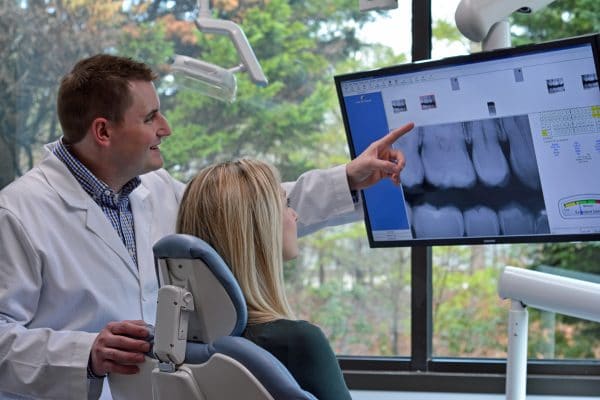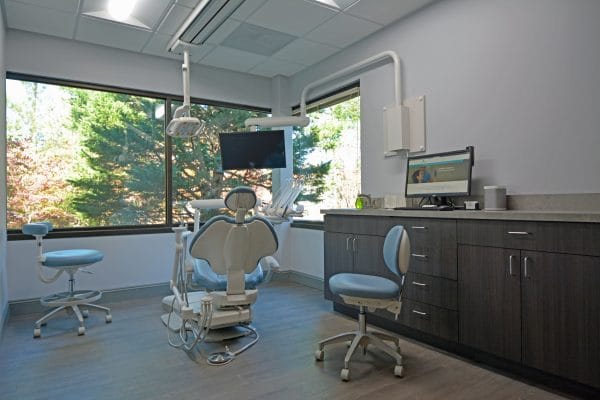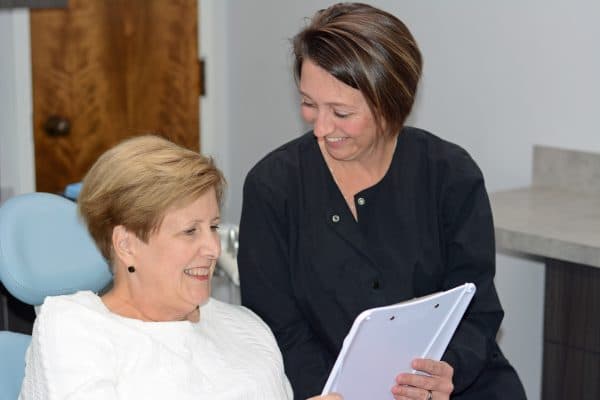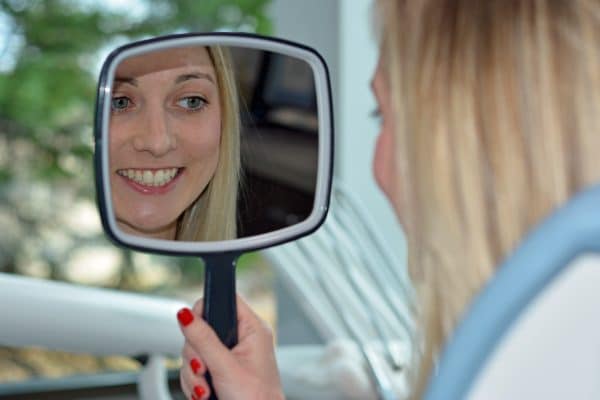TMJ/TMD & Bruxism Chapel Hill
fall in love with your smile
TMJ/TMD & Bruxism
TMJ/TMD and Bruxism refer to oral health ailments in the jaw and face that are typically characterized by headaches, pain in the jaw, or other teeth grinding. If left untreated, these disorders can result in serious damage occurring in the jawbone and surrounding teeth, and can even damage your hearing.
TMJ (temporomandibular joint) connects the temporal bones of the skull to the jaw and is responsible for the jaw being able to move side to side and up and down. When this jaw joint becomes injured or inflamed, symptoms can range from pain, headaches, numbness in the fingertips and face, ringing in the ears, or a jaw that becomes locked or difficult to open.
TMJ disorders are typically classified into the following three categories:
- Myogenous TMJ problems: Most common type of TMD, Myogenous TMJ disorders involve muscle related pain and present as discomfort in the temple, jaw, shoulders, or neck. Often treated with Nightguards and BOTOX® treatment.
- Jaw joint generated pain: Pain caused by internal derangement of TMJ, which can result due to injury to the condyles, displaced disc within the TMJ, or a dislocated jaw
- Degenerative joint disease: Caused by other issues such as rheumatoid arthritis or osteoarthritis
The exact cause of TMJ/TMD is unknown, but several potential contributing factors include:
- Arthritis
- Bruxism
- Dislocation of the Cushioning Disc
- Genetic predisposition
- Injury
- Stress
If you would like to schedule an appointment or if you have any questions about our treatment options, please contact our office at (919) 595-1010. We look forward to creating the smile you have always desired a reality for you.
More On Bruxism
Bruxism is a condition that is characterized by clenching, gnashing, or grinding your teeth. Bruxism can occur while awake or while sleeping. Patients who have sleep bruxism commonly have related issues such as sleep apnea or snoring.
Common signs of bruxism include the following:
- Headaches
- Hearing Loss
- Fractures or Loose Teeth
- Jaw Pain
- TMJ/TMD
- Worn Teeth
Sleep apnea is also commonly associated with Bruxism. Patients most commonly discover they have sleep apnea due to a patient’s partner complaining about their snoring while sleeping. If you are told this is an issue, your dentist may be able to diagnose the issue as being related to sleep apnea by looking at the surfaces of your teeth to look for signs of bruxism. Patients who suffer from bruxism caused by sleep apnea can develop additional oral health issues due to the damage caused by the teeth, which can allow for bacteria to gather and develop into periodontal diseases.
Causes of Bruxism
In addition to treating bruxism, it is important to determine what the root cause of the bruxism is. If you are experiencing any of the aforementioned issues, be sure to make the following changes to see if your symptoms improve or go away.
- Never chew on non-food items
- Practice techniques for relaxing your jaw
- Reduce stress
- Cut down on caffeine
- Limit alcohol intake
If you have experienced any of these symptoms, or if you would like to learn more about how to effectively treat TMJ/TMD and Bruxism, please read below, or contact our staff who will be happy to answer any of your questions and/or set up a consultation
Treating TMJ/TMD & Bruxism
There are several steps patients can take to address issues related to TMJ/TMD or Bruxism, including actively working to reduce stress by practicing yoga or mindfulness, avoiding chewing gum, or massage.
One of the most effective treatments for TMJ/TMD or Bruxism are night guards. Night guards are dental appliances that can be recommended for a variety of oral health issues, the most common being for patients who are struggling with TMJ/TMD or Bruxism (teeth grinding). Mouth guards (which are also suggested for patients who engage in sports or intense physical activity regularly) tend to be more affordable and do not require a prescription. Night guards are made in a laboratory and are designed for your unique mite and mouth. Although this is a more expensive option, night guards also tend to be more comfortable to wear.
Although mouth guards and night guards are effective methods for preventing damage to your jaw, teeth, and overall oral health, and many patients report success with reducing or eliminating symptoms associated with TMJ/TMD or Bruxism, there is a chance that this will not be an effective treatment for you. If night guards are not effective in improving TMJ/TMD or Bruxism, surgery to rebuild the patient’s bite may be a viable option, but most dentists will make concerted efforts to avoid surgical intervention if possible.





High-Quality Dental Care
At Cornerstone Family Dentistry in Chapel Hill, all our services are performed with the patient in mind. We want you to feel comfortable in the dental chair, confident in our work, and most importantly, we want you to fall in love with your smile again. If you would like to schedule an appointment or if you have any questions about cosmetic procedures that we offer, please contact us at (919) 595-1010.
